Astrophysicist Explores Our Turbulent Universe
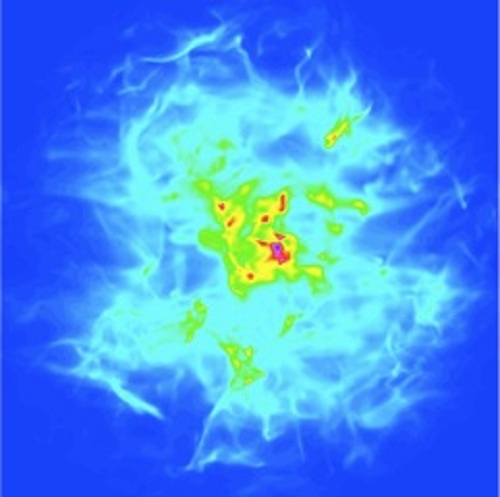
This ScienceLives article was provided to LiveScience in partnership with the National Science Foundation.
Blakesley Burkhart is a National Science Foundation Graduate Research Fellow in astronomy at the University of Wisconsin-Madison. She received her master's degree in astronomy and in physics from the University of Wisconsin-Madison in 2010 and her bachelor's in physics and mathematics from the University of Louisville, in Kentucky, in 2008.
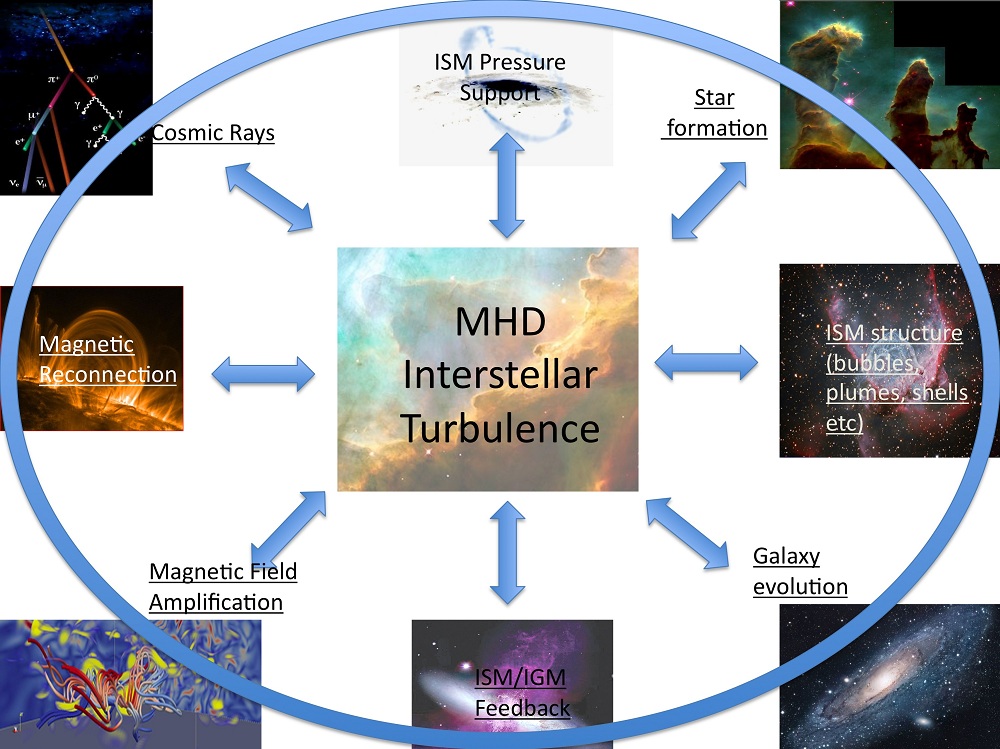
Burkhart and her advisor, Alex Lazarian also of the University of Wisconsin-Madison, study the dynamics of gasses in the interstellar medium. More often than not, this gas is highly turbulent and also influenced by magnetic fields. Burkhart conducts her studies with both radio observational data of interstellar gas and simulations of how this conductive and magnetic fluid moves — comparing the two with different statistical tools to describe the conditions present in the gas.
Knowing the different physical processes occurring in the interstellar medium has critical applications in many different fields of astronomy: Star formation, the acceleration of cosmic rays and even the evolution of entire galaxies.
Burkhart is also involved in astronomy outreach programs at the University of Wisconsin-Madison, including Universe in the Park, telescope shows at the Washburn Observatory, writing for a science blog and several science fairs and shows throughout the year, such as: Expanding Your Horizons, for middle school girls, and Science Expeditions for elementary school students.
Burkhart also attended the 2010 Communicating Astronomy with the Public conference in South Africa and traveled to Indonesia, where she chatted with girls in a small village of Pati, Java, about science, being a woman in science and going to college. Burkhart saw what an opportunity she had to make a difference in peoples' lives by sharing her love of science with them.
Read more about Burkhart's research in this article from the Australian Broadcasting Corporation and this press release from the University of Wisconsin-Madison.
Sign up for the Live Science daily newsletter now
Get the world’s most fascinating discoveries delivered straight to your inbox.
Burkhart answers the ScienceLives 10 questions below.
Name: Blakesley Burkhart Age: 25 Institution: University of Wisconsin-Madison Field of Study: Astrophysics — Magnetized Fluid Dynamics in Interstellar Space
What inspired you to choose this field of study?
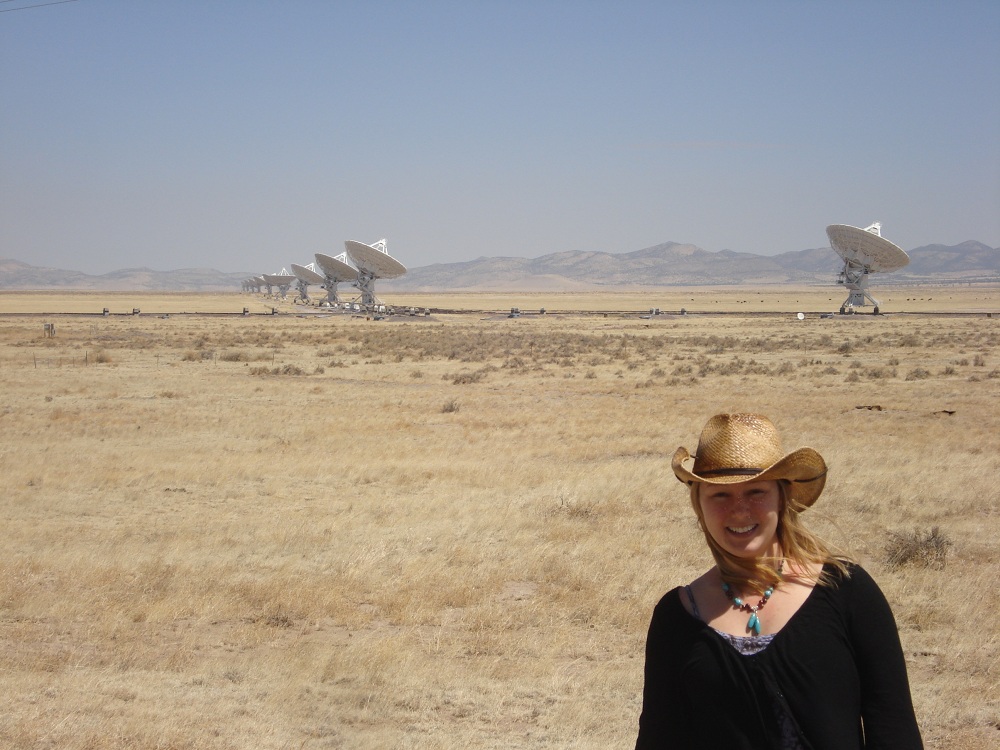
Growing up the in '90s, it was easy to get inspired by astronomy and space science. These were the golden years of the Hubble Space Telescope and the Mars Pathfinder, and the coming of the Internet made it easier for the public to feel a part of the latest discoveries of the universe.
With all the current discussion about the cancelation of Hubble successor projects like the James Webb Space Telescope, I really worry about the future generation of scientists. Astronomy is a 'gateway science,' which inspires people to get interested in other science, technology, math and engineering subjects, as well. Those cancelations will not only hit the astronomy community hard, but the effects will be felt in all the sciences well into the future.
In my case, I was hooked on this 'gateway science,' and although it was clear astrophysics was my passion, my path towards studying the turbulence of the interstellar medium matured later in college. I discovered that this turbulence (also called magnetohydrodyanic (MHD) turbulence) is of critical importance to so many different aspects of astronomy, and it also encompasses some of the most beautiful theories in all of physics — for example, the theory of electromagnetic radiation as given by Maxwell's equations, and the Kolmogorov (1941) and Goldreich-Sridhar (1995) models of incompressible hydrodynamic and magnetohydrodyanic turbulence, respectively. Perhaps it comes as no surprise my cat is named Maxwell.
What is the best piece of advice you ever received? "No one can make you feel inferior without your consent" — Eleanor Roosevelt
My mother always encouraged my studies and pushed me to work hard. However, even with supporting family and friends, there will always be naysayers for anything big that you plan to do. As a female in a very male dominated field, I often remind myself of this quote from Eleanor Roosevelt, which has helped me to "not consent" to negative statements and biases from colleagues, friends, professors and strangers, which could have pushed me away from a career in astrophysics.
What was your first scientific experiment as a child? In elementary school, my favorite class was — surprise — science class! The focus for seven-year-old Blakesley was clearly on animals and I loved to go to the woods near my house and collect any dead frogs or fish and put them in vinegar jars to be preserved in our science lab. At this time, though, I was more of a reader and imaginer than the kid who would build things. This probably led me more towards theoretical physics rather than engineering or lab-based experiments.
What is your favorite thing about being a researcher?
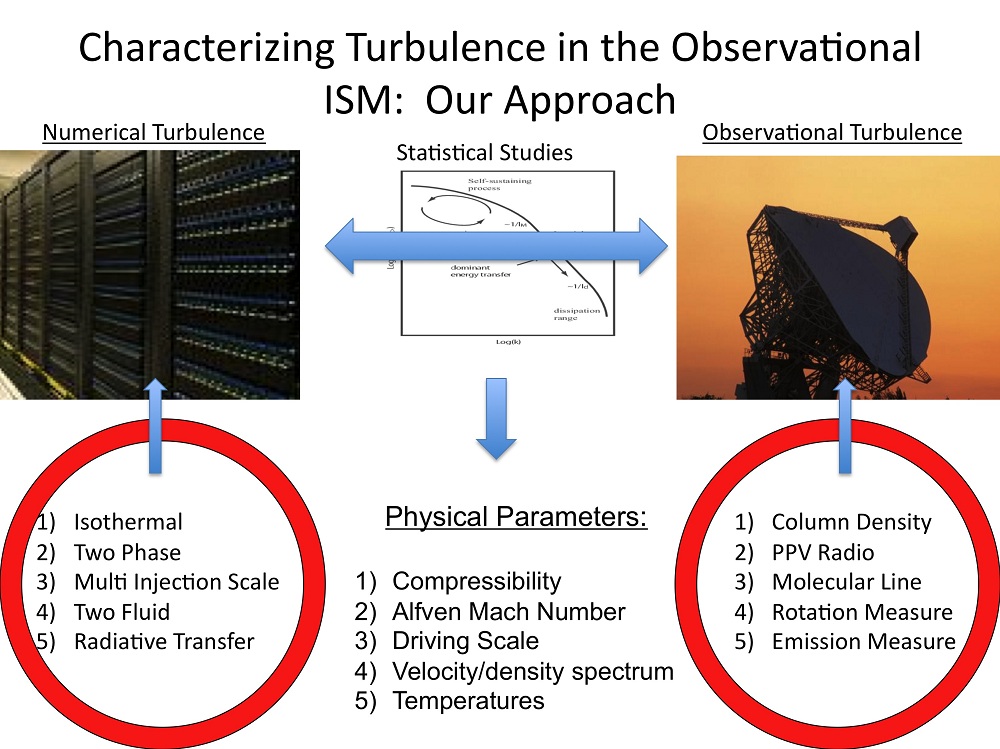
I love to learn and when you are a researcher, your job is learning. You are creating new ideas that no one has ever thought of before, discovering something that no one has ever seen before. You are pushing human knowledge into unknown territory, and you even get paid to do it. Other aspects I love include all the travel to conferences and staying up-to-date (more learning!) with what other people are doing in my field and other fields in astronomy.
What is the most important characteristic a researcher must demonstrate in order to be an effective researcher? There are two characteristics I see as being critical. One is passion for the work you are doing, and the other is excellent written and spoken communications skills. You can be the greatest genius in the world, but if you are lacking one of these then you will run into trouble in modern academia.
If you lack enthusiasm and passion for your work, you will burn out fast, as research careers are very demanding on your time and personal life. If you lack communications skills, you will have trouble funding your work, will not make a good impact at conferences and potentially make enemies of other researchers by saying the wrong things.
What are the societal benefits of your research? At first glance, it may seem astronomy and magnetic turbulence would be topics that would provide few societal benefits, however this view couldn't be further from the truth. Not only are there many different ways this research helps humanity, but these benefits touch our lives on many different levels.
First things first, money talks: My particular research in magnetic turbulence has several billion dollars of "societal interest" in terms of the longevity of our satellite communication. There is an MHD flow of particles streaming from the sun every second known as the solar wind. This wind can go from a gentle breeze to a full out storm when the sun is particularly active.
The Earth's magnetosphere protects us on the ground and provides the beautiful aurora when these events happen, but the satellites can be damaged if a particularly violent solar storm occurs. Therefore, it is critical to understand and study this magnetic turbulence coming from the sun in order to know how to react to those events.
Furthermore, MHD turbulence affects many other topics such as how stars and planets are formed, and how cosmic rays accelerate, which is relevant to a huge host of topics of interest to current researchers, from pressure support in the Milky Way galaxy to even global warming and human health.
Astronomy in general has huge societal benefits. I really believe that the more people are aware of the scope of the grand universe of which they are a part, the more we will come together as a human race and abandon tribalistic tendencies. If everyone were to realize just how alone we are in space and how precious our planet is, we might be more kind to each other and to the Earth.
Who has had the most influence on your thinking as a researcher? As a young researcher it is easy to say that my researcher adviser, Alex Lazarian, has clearly had the most influence on me as a scientist. With him, I am really learning how to ask the interesting questions and how to solve them!.
What about your field or being a researcher do you think would surprise people the most? Most people have no idea how important turbulence and magnetic fields are in the universe. Life on Earth, and even our sun, could not exist without them.
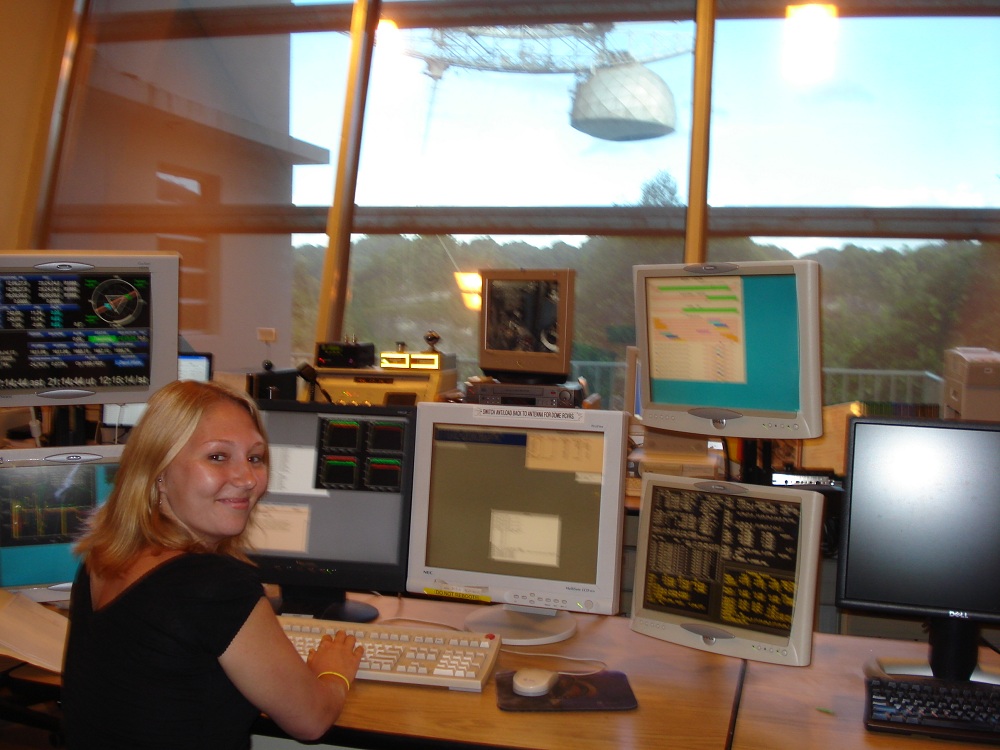
Most people have no idea how much our daily lives are impacted by the discoveries of basic fundamental sciences. People would be surprised by how much of modern technology and society is founded on the discoveries from a few researchers in the past who just wanted to know for the sake of the knowledge alone. This is how most progress is really made.
If you could only rescue one thing from your burning office or lab, what would it be? No question about it: Computer, computer, computer! Though, of course, we do perform regular backups. I would also save my tea duckie. [Editor's Note: A "tea duckie" is a floating tea infuser in the shape of a rubber duckie.]
What music do you play most often in your lab or car? I will either play very upbeat music that keeps my energy high or very relaxed ambient music (known as triphop). I love most genres of music from hip-hop to jazz, although I'm not so keen on country music.
Editor's Note: This research was supported by the National Science Foundation, the federal agency charged with funding basic research and education across all fields of science and engineering. Any opinions, findings, and conclusions or recommendations expressed in this material are those of the author and do not necessarily reflect the views of the National Science Foundation. See the ScienceLives archive.










